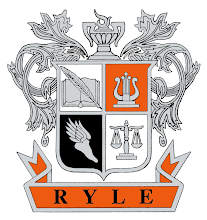What is Kentucky’s definition of college readiness?
College readiness is the level of preparation a first-time student needs in order to succeed in a credit-bearing
course at a postsecondary institution. “Success” is defined as completing entry-level courses at a level of
understanding and proficiency that prepares the student for subsequent courses. Kentucky’s system-wide
standards of readiness guarantee students access to credit-bearing coursework without the need for
developmental education courses or supplemental coursework.
What is Kentucky’s definition of career readiness?
Career readiness is the level of preparation a high school graduate needs in order to proceed to the next step
in a chosen career path, whether that is postsecondary coursework, industry certification, or entry into the
workforce. These include core academic, critical thinking, and technical skills required in the workplace.
What are Kentucky’s ACT standards of readiness?
Most definitions of college readiness include some predictive statement about how well students will do in
relevant college courses based on national assessments, such as the ACT or SAT. Kentucky’s system-wide
ACT benchmarks guarantee placement into college credit-bearing coursework. The standards are based on
ACT scores of 18 for English and 20 for reading, with a three-tiered approach for mathematics due to
requirements for specific college majors. The mathematics benchmarks are 19 for introductory-level
mathematics courses, 22 for college algebra, and 27 for calculus.
What is Senate Bill 1 (2009)?
Senate Bill 1, signed by Governor Steven L. Beshear on March 26, 2009, is a significant piece of education
legislation that revises the assessment and accountability system for P-12 education in Kentucky. It requires a revision of the core academic standards to be based on national and international benchmarks in order to
increase the rigor and focus the content of P-12 education.
What are the unified strategies?
As a consequence of Senate Bill 1, the Kentucky Department of Education, in collaboration with the Kentucky Council on Postsecondary Education, developed four key unified strategies to reduce by 50% the number of recent high school graduates entering college not prepared for credit-bearing coursework, and to increase graduation rates of postsecondary students with college readiness needs. The strategies include:
1. Accelerated learning opportunities (AP/IB/dual credit)
2. Secondary intervention programs (transition coursework)
3. College and career readiness advising (ILP)
4. Postsecondary college persistence and degree completion (bridge programming and student support)
Each of the strategies, developed by cross-agency teams that included the Kentucky Community and
Technical College System, four-year institutions and other external agency partners, has goals and action
plans, useful resources, and expected outcome measures. The teams also developed metrics to measure
progress on each of the SB1 goals.
The activities of the work teams will be ongoing and represent a model of collaboration with a shared vision of having all students prepared for postsecondary education and career success.
What is the purpose of the common core standards?
The establishment of the Kentucky Core Academic Standards is the beginning of integrating college readiness standards into the state’s curriculum guidelines, teacher preparation programs, and higher education programming and activities. These standards are focused on 21st-century skills and ensure students are wellprepared for college and career opportunities. With the adoption of these standards, Kentucky became the first state to formally accept the common core standards and joined a multi-state consortia to develop highquality assessments around the standards. These assessments will provide incentives for early college opportunities.
In addition, the Kentucky Core Academic Standards enable Kentucky educators to:
• articulate to parents, teachers, and the general public expectations for students;
• align textbooks, digital media and curricula to the internationally benchmarked standards;
• ensure professional development for educators is based on identified need and best practices;
• develop and implement an assessment system to measure student performance against the common
core state standards; and
• evaluate policy changes needed to help students and educators meet the common core state college
and career readiness standards.
How are schools handling students who are not college or career ready?
All Kentucky students are encouraged to complete rigorous coursework throughout high school and take
advantage of dual credit, dual enrollment, Advanced Placement, and International Baccalaureate opportunities.
High school seniors not meeting readiness benchmarks are being encouraged to take advantage of senior
year transition courses. These courses allow students the opportunity to demonstrate readiness for college
credit-bearing coursework through placement testing. High school transitional courses in reading and
mathematics were developed by P-12 and postsecondary education partners in spring 2010 and will be
available in 2010-11 for high school seniors who do not meet readiness benchmarks. Bridge and academic
support programs, available at many colleges and universities, offer first-time students the opportunity to build needed skills in a supportive academic environment prior to their first full semester of enrollment.
To read the entire Q&A go to
The Commonwealth Commitment











No comments:
Post a Comment